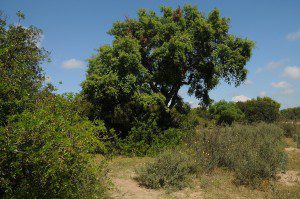Challenges for the new EU Forest Strategy
The European Commission will prepare a proposal for the new EU forest strategy with the objective to propose a coherent policy framework on European Forests. For the moment, the European Parliament and Committee of Regions have already started to debate about it. Beyond the managerial expertise on forests, the members of EUROPARC Federation will be impacted by these policies. The LIFE Red Bosques shared with us some of the challenges and management recommendations for the Mediterranean forests.
European forests – and in particular the Mediterranean ones – are at a crossroad.
After centuries of very intense use followed by abrupt abandonment, most of the forest area is today formed by young or rejuvenated masses, with a very simplified biodiversity, which are particularly vulnerable to disturbances such as large fires and pests.
Due to inaction and continuous policies it is necessary to take actions so that our forests, essential for the well-being of society, are in a good state of conservation that ensures their long-term survival. As 50% of the area protected by Natural 2000 are forests, improving their conservation status is a high priority for the EU and its member states. In this sense, the new 2030 Biodiversity Strategy and the European Green Deal developed by the Commission are relevant opportunities to put forest conservation on the international agenda.
The LIFE RedBosques project has formulated some challenges and management recommendation which should be considered within the new EU Forest Strategy from the perspective of Mediterranean forests.
Challenges and management recommendations:
Forest Management
Valuing the set of services that forests provide to society by incorporating a greater variety of long-term objectives into forest management, like biodiversity conservation, recovery of ecological processes or adaptation to climate change.
Identifying and characterizing the last existing mature stands as referents for a forestry that promotes greater heterogeneity and diversity.
Ensuring the effective protection of those mature stands through appropriate legal instruments.
Forest management aimed at improving conservation status should become an opportunity to obtain financial resources. For this the dialogue with European fund managers must be improved.
Carefully assessing forestry oriented towards mitigation actions in order not to conflict with biodiversity values and the preservation of the full array of services forests provide.
Training

Mediterranean Forest © David Morris www.flickr.com/photos/davidjmorris/
Improving the knowledge of the dynamics of Mediterranean forest ecosystems. Unlike boreal and Atlantic forests, Mediterranean forests are periodically affected by high intensity disturbances. Therefore, existing models must be adapted to the reality of landscapes.
Promoting a change of mentality at all levels among forestry by improving the training of all actors involved, from the political to the technical level in order to incorporate new objectives into the traditional management.
Communication
Improving the communication of the value of forests in general and mature stands in particular, and of the different management options necessary for their conservation. This communication should be addressed to society in general as well as to decision makers and forest owners.
Raising awareness of all actors involved for the need to improve the state of forest conversation, more beyond the direct economic benefit. The management of risks caused by the climate change and the maintenance of the property in a good state of conservation should be an incentive for the forest management.
To learn more about the challenges and management recommendations from the RedBosques Project please download the information sheet here:
Recommendations EU forest Strategy
About LIFE RedBosques Project

The LIFE RedBosques project aims to improve the management of Spanish Mediterranean forests included in Natura 2000, facilitating access of practitioners to state-of-the-art knowledge. The project’s goal is that forest managers effectively include biodiversity conservation and climate change adaptation objectives in their daily practice. Learn more about the project, their activities and goals on the website or watch the Video!